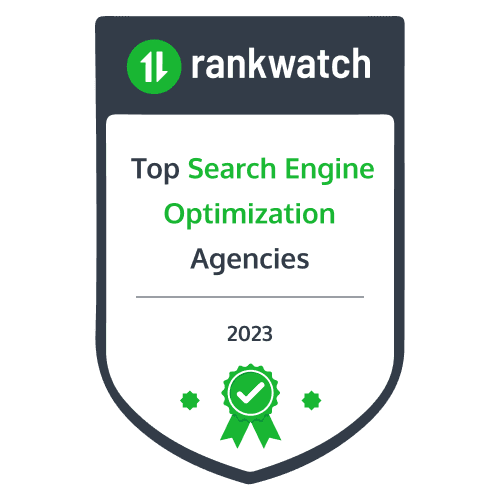Search engine optimization (SEO) is an ever-evolving digital marketing strategy. It’s essential for businesses of all sizes who want to stay ahead of the competition and generate more leads. Optimizing your website for SEO is a powerful way to get your website to the top of search engine rankings and increase visibility to potential customers. In this blog post, we’ll discuss the best practices for SEO in 2023.
Introduction to SEO


Do you want to understand what SEO is all about? Basically, it is enhancing the visibility of your website in the organic search results of popular search engines. To gain that visibility, you need to comprehend three key elements:
What kind of content do search engine users and customers need or want?
How do search engines detect, index, and offer content in search engine result pages?
How to correctly promote and optimize your website to provide search engines with more information about it.
Benefits of SEO
SEO is a potent marketing tool that can significantly impact your business. A well-optimized website can help you reach more people, increase sales, and build a solid online presence. Here are some of the key benefits of SEO:
- Increased visibility: SEO helps you get more visibility in search engine results pages, which means you can attract more people to your website.
- Increased traffic: SEO helps you rank higher in the SERPs, which means more people will visit your website.
- Increased conversions: SEO helps you get more qualified leads, which leads to more conversions and sales.
- Increased brand awareness: SEO helps you get more exposure in the SERPs, which helps to build your brand’s reputation and credibility.
Key Components of SEO
SEO consists of several components that all work together to help your website rank higher in the SERPs. Here are some of the critical elements of SEO:
- On-page optimization: This involves optimizing your website’s content, titles, meta descriptions, and other elements to ensure it is suitable for the target keywords.
- Off-page optimization: This involves optimizing the links pointing to your website from other websites.
- Link building: This involves building links to your website from other websites.
- Content optimization: This involves optimizing your website’s content to ensure it’s relevant to the target keywords.
Understanding the Basics of SEO


The first step to successful SEO is understanding the basics. SEO is an ever-evolving field, and staying up-to-date on the latest search engine algorithms and trends is essential. Here are some of the basics of SEO to keep in mind:
- Quality over quantity: Quality content is one of the most critical factors in SEO. It’s more important to have well-written, relevant content than a lot of content.
- Optimize the right target keywords: It’s essential to optimize keywords that reach your target audience.
- Optimize for mobile: Mobile optimization is increasingly important in SEO as more users search from their phones these days.
- Monitor your progress: It’s essential to monitor your progress and make adjustments as necessary to receive the best results.
How to Optimize Your Website for SEO?
Once you’ve understood SEO basics, it’s time to optimize your website. Here are some tips for optimizing your website for SEO:
- Create high-quality content: Quality content is essential for SEO. Ensure that your content is well-written and relevant to your target keywords.
- Optimize your titles and meta descriptions: Titles and meta descriptions are essential for SEO as they give users an idea about your page.
- Optimize your images: Images are essential for SEO as they can help improve your website’s visibility in the SERPs.
- Utilize internal linking: Internal linking is vital for SEO as it helps improve your website’s structure and hierarchy.
- Use relevant keywords: Keywords are essential to SEO as they help search engines understand your content well.
Link Building Strategies for SEO
Link building is an integral part of SEO as it helps to improve your website’s ranking in the SERPs. Here are some link-building strategies that you can use to improve your website’s SEO:
- Guest blogging: Guest blogging is a great way to build links to your website. Look for websites in your industry where you can write guest posts and link to your website.
- Broken link building: Broken link building is a great way to find opportunities to build links to your website. Look for broken links on other websites and offer them a link to your website as a replacement.
- Influencer outreach: Reach out to influencers in your industry and ask them to link to your website. It is a great way to get quality links and increase your website’s visibility.
Best Practices for On-Page SEO
On-page SEO involves optimizing the elements on your website to make it easier for search engines to understand. Here are some best practices for on-page SEO:
1. Use Relevant and Targeted Keywords: Conduct keyword research and use targeted keywords in the title, heading tags, meta description, and content of your web page. However, avoid keyword stuffing, which can hurt your website’s ranking.
2. Optimize Page Titles: The title tag is an essential on-page SEO factor. Ensure the title tag is descriptive, concise, and contains your targeted keywords.
3. Use Heading Tags: Use H1 and H2 tags to structure your content and make it easier for users and search engines to understand the page’s content.
4. Optimize Meta Descriptions: The meta description is the short blurb that appears on search engine results pages. Use relevant keywords, and ensure that it’s descriptive and compels users to click.
5. Use Alt Tags for Images: Search engines cannot read images, so using alt tags helps to describe the images to search engines, improving the page’s relevance and accessibility.
Best Practices for Off-Page SEO
Off-page SEO involves optimizing the elements outside of your website that can affect your website’s ranking in the SERPs. Here are some best practices for off-page SEO:
- Build high-quality backlinks: Backlinks are a crucial part of off-page SEO. However, it’s essential to focus on quality rather than quantity. Aim to get backlinks from reputable websites that are relevant to your niche.
- Guest blogging: Guest blogging is an effective way to get high-quality backlinks to your website. You can write guest posts for reputable websites in your niche and include a link back to your website.
- Social media engagement: Social media engagement can help you build brand awareness and drive traffic to your website. Focus on building a solid social media presence and engaging with your followers regularly.
- Online directories: Online directories are an effective way to get your website listed and improve your search engine rankings. Make sure to submit your website to reputable directories.
- Influencer marketing: Partnering with influencers can help you build brand awareness and drive traffic to your website. Look for influencers in your niche and collaborate with them to create valuable content.
Blog Posting for SEO
Blog posting is a great way to optimize your website for SEO. It helps to keep your website up-to-date with fresh content and can help to improve your website’s visibility in the SERPs. Here are some tips for blog posting for SEO:
1. Choose Relevant Keywords: Research relevant keywords and use them in your blog post title, subheadings, and throughout content. Use long-tail keywords that match the intent of the searcher’s query.
2. Use Title Tags and Meta Descriptions: Your blog post’s title tag and meta description provide a brief overview of your content to search engines and potential readers. Make sure to include your target keyword in both of these elements.
3. Optimize Images: Use descriptive file names and alt tags to help search engines understand what your images are about. It will also improve your blog’s accessibility for visually impaired readers.
4. Link Internally: Linking to other relevant pages on your website helps search engines understand the structure of your site and the relationship between your content.
5. Provide High-Quality Content: Focus on creating high-quality content that provides value to your readers. It will help attract links and social shares, which are essential to improving your search engine rankings.
Utilizing Local SEO to Reach Your Target Audience


Local SEO is a great way to reach your target audience in a specific geographical area. Here are some tips for utilizing local SEO to reach your target audience:
- Optimize your website for local keywords: Optimize your website for local keywords to ensure that your website appears in local search engine results pages.
- Optimize your website for Google My Business: Google My Business is an integral part of local SEO as it helps to increase your website’s visibility in local search engine results pages.
- Utilize local directories: Utilize local directories to increase your website’s visibility in local search engine results in pages.
- Monitor your progress: Monitor your progress and make adjustments as necessary to ensure that you optimize your website for local SEO.
SEO Strategies for 2023
With SEO constantly evolving, keeping up on the current search engine algorithms and patterns is critical. Here are some SEO ideas to remember in 2023:
1. Focus on User Experience: Search engines prioritize user experience when ranking websites. It would be best if you aimed to provide an excellent user experience with a user-friendly design, fast page speed, mobile responsiveness, and high-quality content that addresses the user’s needs.
2. Content Quality: Creating high-quality, valuable, and engaging content is one of the most effective SEO strategies. Ensure that your content is well-researched, unique, informative, and keyword-optimized.
3. Voice Search Optimization: With the rise of voice assistants, voice search optimization is becoming more critical. Optimize your content to match voice search queries using natural language and long-tail keywords.
4. Local SEO: Local search optimization is essential if you have a physical business location. Optimize your website for local search queries by including your business’s name, address, and phone number (NAP) on your website and local directories.
5. Artificial Intelligence (AI): With the increasing use of AI in search engines, using structured data and schema markup can help improve your website’s visibility in search engine results pages (SERPs).
SEO Tools to Help You Get Started
SEO can be daunting, but many tools can help you get started. Here are some of the best SEO tools to help you get started:
- Google Search Console: Google Search Console is a great tool to help you monitor your website’s performance in the SERPs.
- SEMrush: SEMrush is an excellent tool for keyword research and optimization.
- Ahrefs: Ahrefs is an excellent link-building tool and website analysis tool.
- Moz Pro: Moz Pro is a great tool to help you monitor your website’s performance in the SERPs.
- Screaming Frog: Screaming Frog is a great tool to help you crawl your website and identify any SEO issues.
Conclusion
SEO is an imperative part of digital marketing, and staying up-to-date on the latest trends and best practices is necessary. In this blog post, we discussed the best practices for SEO in 2023. In addition, we discussed the critical components of SEO, optimizing your website for SEO, link-building strategies, best practices for on-page and off-page SEO, blog posting for SEO, utilizing local SEO to reach your target audience, and SEO tools to help you get started.
Take your website to the top of search engine rankings with Markitome’s expert SEO services – boost your online visibility today!



We hope you’re enjoying reading our blogs… Don’t forget to secure your browsing experience with Nord VPN. Click the banner below to learn more
More To Explore
Redefining Digital Marketing in 2024: 10 Game-Changing Trends
In the ever-evolving world of digital marketing, staying ahead of the curve is essential. As we approach 2024, it’s crucial to be aware of the
SEO Mania-7 Proven Strategies for Explosive SEO Growth in 2024
Understanding the Importance of SEO in 2024 In the ever-evolving world of SEO, staying ahead of the curve is crucial to your online success. As